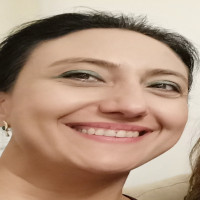Research Article
Aim & Scope
Haliç University Journal of Science started to get published twice a year in September 2018. Submitted articles are reviewed and evaluated by the referees, and accepted articles are published online on the journal's website.
In this journal, original and review articles based on research in the fields of natural sciences, engineering, and architecture are published in Turkish or English.
1. Engineering and Technology
1.1 Electrical and Electronic Engineering
1.2 Computer and Software Engineering
1.3 Mechanical Engineering
1.4 Industrial Engineering
1.5 Civil Engineering
1.6 Food Engineering
1.7 Petroleum
2. Applied sciences
2.1 Mathematics
2.2 Physics
2.3 Chemistry
2.4 Biological Sciences
2.5 Earth Sciences
3. Architecture and Design
3.1 Architectural history and theory
3.2 Digital Design
3.3 Interior design
3.4 Landscape Architecture
3.5 Urban Design
Author Guidelines
You can download the "Writing Rules" template to your computer here.
Ethical Principles and Publication Policy
Haliç University Journal of Science is committed to maintaining the highest academic and ethical standards. In this respect, it undertakes to comply with the principles established according to the recommendations and guidelines developed by the Committee on Publication Ethics (COPE) for journal editors. These principles are given below.
Since Haliç University Journal of Science adheres to the principle of open access and free academic publishing, article processing and submission fees are not requested from authors. All content can be accessed in full text from the date of publication without any restrictions via DergiPark or halic.edu.tr internet address.
Authors are obliged to comply with the following Principles and Article Writing Rules before submitting their articles. The articles to be submitted are pre-checked by our editors. Feedback is given to the author to correct the parts that do not comply with the writing guidelines. Each article is evaluated by two referees who are experts in the field of study under the leadership of the field editors. By the referee reports and the opinion of the field editor, the acceptance, minor revision, major revision, or rejection decision about the article is notified to the author. The articles to be submitted are requested to contain original research results that will fill a gap in the field or to be a review study.
In addition to the Writing Rules, Haliç University Journal of Sciences makes publications under the following principles:
1. Responsibilities of the Editorial Board
Publication Decisions
The Editorial Board of Haliç University Journal of Science is responsible for deciding on the publication of the articles submitted to the journal.
The Editorial Board promotes academic integrity by following the Good Publication Practice Guidelines defined by the COPE.
The Editorial Board ensures the originality of written works by uploading them to plagiarism prevention software such as Turnitin or iThenticate before publication.
After the similarity report is checked by the journal editors, articles with a similarity rate of 20% or less, excluding references, are sent to referees for evaluation. For articles with a similarity rate above 20%, excluding references, a correction is requested from the author.
The Editorial Board considers it as a mandatory condition for the application that an article submitted to our journal should not have been submitted to the referee process of another journal at the same time. The Editorial Board reserves the right to withdraw articles in case of violation of ethical rules.
Objectivity
The Editorial Board evaluates articles based on their academic and scientific content, regardless of the author's race, sexual orientation, religious beliefs, ethnicity, nationality, and political philosophy.
2. Author's Responsibilities
Before Publication
Authors must apply to our journal with their original work. Authors cannot submit the same manuscript to the review process of different journals at the same time. Submitting the same article to multiple journals concurrently constitutes unethical behavior and is unacceptable.
Authors are responsible for the accuracy and verification of the references.
Authors may be asked to provide research data supporting their work for review by the Editorial Board and/or to comply with the journal's open data requirements. The author reserves the right to withdraw the manuscript until the publication decision is made and provided that the journal's editorial board is notified.
Except for individual use, articles, figures, and tables published in Haliç University Journal of Science cannot be reproduced, archived in a system, or used in advertising or promotional materials without written permission. Scientific articles can be quoted with proper citations.
All responsibility for the articles belongs to the respective authors. Articles should be prepared by internationally recognized scientific ethical rules. If necessary, a copy of the Ethics Committee Report should be attached.
Copyright Regulation
The copyright transfer form must be filled in.
3. Responsibilities of the Referees
Haliç University Journal of Science respects the blind refereeing process. Manuscripts submitted to the journal are first reviewed by the Editorial Board, and those deemed appropriate are directed to field editors who are experts in their fields. The field editors send the article to at least two referees. If the reports, in which the names of the referees are kept confidential, are positive, the article is published. If the field editor or referees have criticisms and suggestions regarding the article, the article is published after the necessary corrections are made within one month after the article is sent to the author. In the process of article acceptance, if the opinions of two referees differ, a decision is made by taking the opinion of the editor or a third referee.
Confidentiality
Reviewers are obliged to protect the confidentiality of the manuscript submitted to them while conducting their independent evaluation and cannot use the information obtained during the evaluation process for their personal purposes and interests and may not share it with third parties. Reviewers should not communicate directly with authors without the permission of the editor.
Ethical Issues
The reviewer should be attentive to potential ethical issues in the manuscript and bring them to the editor's attention. This includes substantive similarity and overlap between the manuscript under review and any published work of which the reviewer has personal knowledge.
Objectivity
Reviewing will be done objectively. Reviewers should be objective in their criticism and avoid personal comments directed at the authors by targeting the work in their evaluation. Reviewers should consult with the editor before agreeing to review a manuscript in which they have a potential conflict of interest arising from a competitive, collaborative, or other relationship or connection with any of the authors.
You can reach the "Ethical Principles and Publication Policy" text here.
Price Policy
.
Journal Boards
Editorial Board
Prof. Dr. Emine Esra KASAPBAŞI (Department of Molecular Biology and Genetics, Faculty of Arts and Sciences, Haliç University, Turkey)
Assoc. Prof. Dr. Alireza SOURİ (Department of Software Engineering, Faculty of Engineering, Haliç University, Turkey)
Res. Asst. Özlem GÜLEN (Department of Translation and Interpretation in English, Faculty of Arts and Sciences, Haliç University, Turkey)
Res. Asst. Ceren ÇOLAK (Department of Molecular Biology and Genetics, Faculty of Arts and Sciences, Haliç University, Turkey)
Res. Asst. Merve ÖZTÜRK (Department of Architecture, Faculty of Architecture, Haliç University, Turkey)



T. C. Haliç University Journal of Science

